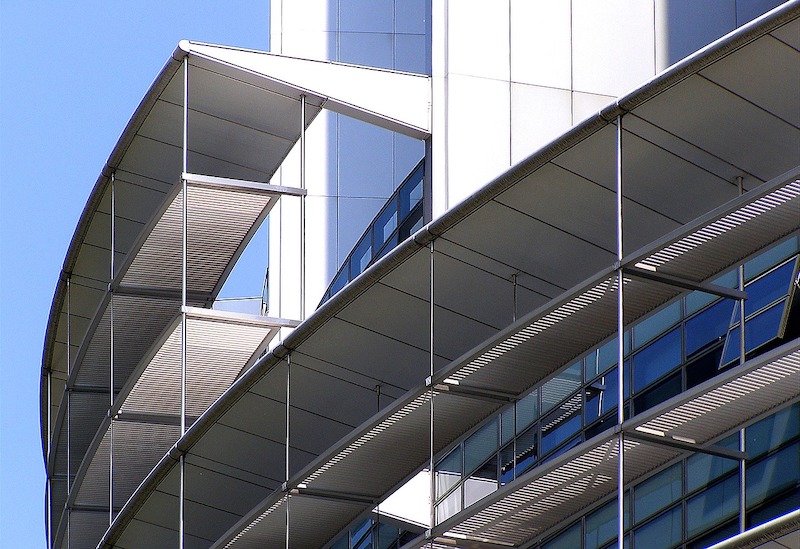The Metal Construction Association (MCA) released three updated Environmental Product Declarations (EPDs).
The subjects of the updates are Metal Composite Materials (MCM), Insulated Metal Panels (IMP), and Roll Formed Aluminum and Steel Cladding. The three documents provide key data on the manufacturing and use of these products, and discuss the Life Cycle Assessment (LCA) and environmental impacts associated with the use of metal cladding in construction.
The EPD for Metal Composite Material Panels includes discussion of product manufacture and processing, in-use conditions, life cycle assessment results, and testing results and verifications. Information on performance standards in the areas of fire, system performance, and finishes are detailed.
The EPD for Insulated Metal Panels describes the history, manufacture, and use of IMP panels and systems, and investigates product lifespan from raw material supply, manufacturing, application, maintenance, performance standards, energy use, water use, demolition, and waste recovery or recycling.
The EPD for Roll Formed Aluminum and Steel Cladding for Roofs and Walls details the manufacturing process of roll forming metal materials into a finished product. The forming process, which can be accomplished either in line or in the field, is also discussed, as well as the products’ environmental aspects and impact.
Related Stories
Legislation | Aug 5, 2022
D.C. City Council moves to require net-zero construction by 2026
The Washington, D.C. City Council unanimously passed legislation that would require all new buildings and substantial renovations in D.C. to be net-zero construction by 2026.
| Aug 4, 2022
Newer materials for green, resilient building complicate insurance underwriting
Insurers can’t look to years of testing on emerging technology to assess risk.
Codes and Standards | Aug 3, 2022
Some climate models underestimate risk of future floods
Commonly used climate models may be significantly underestimating the risk of floods this century, according to a new study by Yale researchers.
Codes and Standards | Aug 2, 2022
New tools help LEED projects reach health goals
The U.S. Green Building Council now offers tools to support the LEED Integrative Process for Health Promotion (IPHP) pilot credit.
Codes and Standards | Jul 29, 2022
Few projects and properties are being built beyond code
Clients and architects disagree on how well building to code provides resilience, according to a recent report by the American Institute of Architects (AIA) in partnership with Owens Corning.
Multifamily Housing | Jul 28, 2022
GM working to make EV charging accessible to multifamily residents
General Motors, envisioning a future where electric vehicles will be commonplace, is working to boost charging infrastructure for those who live in multifamily residences.
Codes and Standards | Jul 27, 2022
Biden administration proposes drastic flood insurance reform
The Biden administration’s proposed major overhaul to the National Flood Insurance Program, or NFIP, would drastically alter how Americans protect homes and businesses against flooding.
Codes and Standards | Jul 22, 2022
Office developers aim for zero carbon without offsets
As companies reassess their office needs in the wake of the pandemic, a new arms race to deliver net zero carbon space without the need for offsets is taking place in London, according to a recent Bloomberg report.
Codes and Standards | Jul 22, 2022
Hurricane-resistant construction may be greatly undervalued
New research led by an MIT graduate student at the school’s Concrete Sustainability Hub suggests that the value of buildings constructed to resist wind damage in hurricanes may be significantly underestimated.
Building Team | Jul 20, 2022
San Francisco overtakes Tokyo as the world’s most expensive city for construction
San Francisco has overtaken Tokyo as the world’s most expensive city for construction, according to a new report from Turner & Townsend.

















